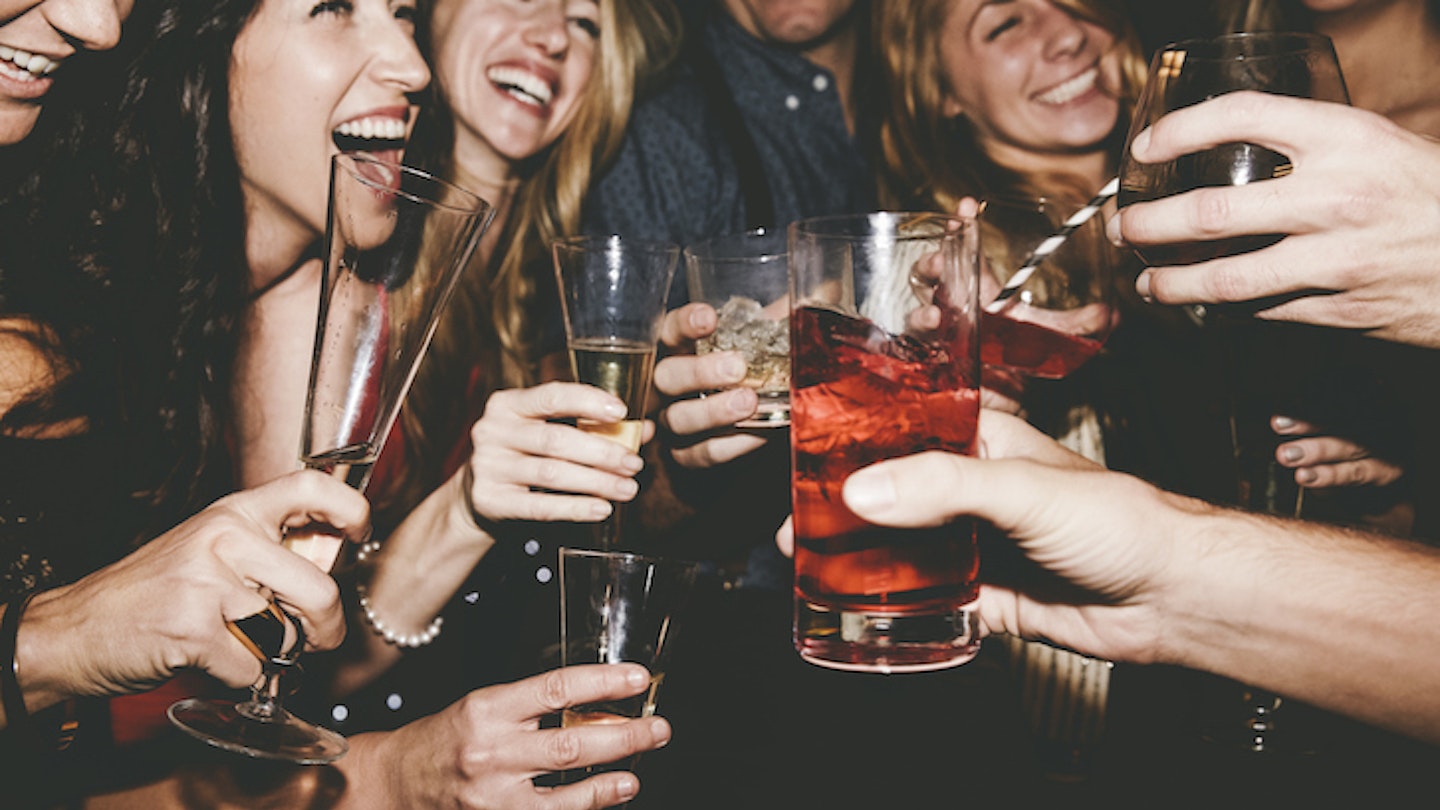As we head into festive party season, binge drinking is back in the headlines: this time, with the news that British women are the biggest binge drinkers across 38 countries, matched only by Danish women.
Just over a quarter of us qualified, by drinking six or more drinks in a single session at least once a month. The study, from The Organisation for Economic cooperation and development, put us ahead of Irish (20.3 per cent), Australian (17 per cent) and French (12.2 per cent) women. The French drank more than us overall, but in more moderate doses - it’s our TGI Friday mentality that put us at the top of the list.
Which is worrying, health wise, and also not particularly surprising, at least if my millennial friendship group is anything to go by. But while I added binge drinking to the long list of things to mentally castigate myself over, I was struck by how familiar the story felt. That study is new, but the tabloid media’s treatment of it isn’t.
When we’re talking about binge drinking, whatever the breaking news is, the front page will always look the same: pictures of women falling arse over armpit, slumped in doorways, or walking barefoot clutching a pair of stilettoes, will be used to illustrate the story.
This time around it might seem justified, as it’s binge drinking amongst women that’s the story here. That’s until you read the study, and find that it’s a story, but not the whole one. Not only were mens habits polled too, but that British men left British women trailing - 44.9 per cent of men were binge drinkers, compared to our 25.5 per cent. That’s not far off double.
British women might binge drink more than any other women, but we’re not doing so in a vortex. Our menfolk aren’t pacing around anxiously at home while hoardes of bladdered women climb lampposts. They’re not nursing a half at the pub while we down 10 pints in an hour. The headlines’ omission of men altogether means that anyone not reading the finer details might assume that British men are more sensible drinkers: but they’re not, are they?
We’re a nation of binge drinkers across the male/female divide. Booze is built into our calendars on high days and holidays; it’s how we celebrate and commiserate. And while bingeing isn’t good for us, it’s not just vomiting out of a cab window nights that qualify, not by the standards of this study.
The six-drinks-a-session criteria means that most of my nights fit into the binge drinking box, even the civilised dinner parties. By that measure, I binged last night, at a mid-week work dinner. But I also ate three courses, drank a glass of water for every one of wine, and was up at 6.30am for a reviving salt bath before a brisk 5km walk with a coffee. I do feel slightly woolly headed today, but I wasn’t too impaired last night to do my skincare routine or read a chapter of my book before I fell asleep. And I didn’t wake up still spooning a bottle of vodka, with a half eaten kebab on the pillow beside me, as media coverage of binge drinking suggests that I should have.
Go to any pub showing any sport on a big screen, and you will find men binge drinking. Those pictures are more likely to be captioned as passions running high. Men sinking pints after work are blowing off steam; those drinking whisky are connoisseurs. Male drinking is only classed as antisocial when it leads to violence; anything else is just high spirits.
But when women drink, it’s different. It's not elegant, or ladylike; it’s antisocial. After any boozy night with my friends, the women will text to apologise for being boring, or too loud, or too much. I send and receive those texts all the time, but never from men.
We’re directly targeted by pink drink advertising for rosé weather or Aperol spritzes, or the Lambrini girls of my teenage years - and then shamed for partaking. The health risks are real enough, but if this was just about our health, then they’d be including the binge drinking men in the warnings. Too many units are too many, whether they have tiny umbrellas floating in them or not, and the context of those drinks are important. So isn’t it curious that it’s the bottomless brunches that are highlighted as a problem, but not the pub crawls?
